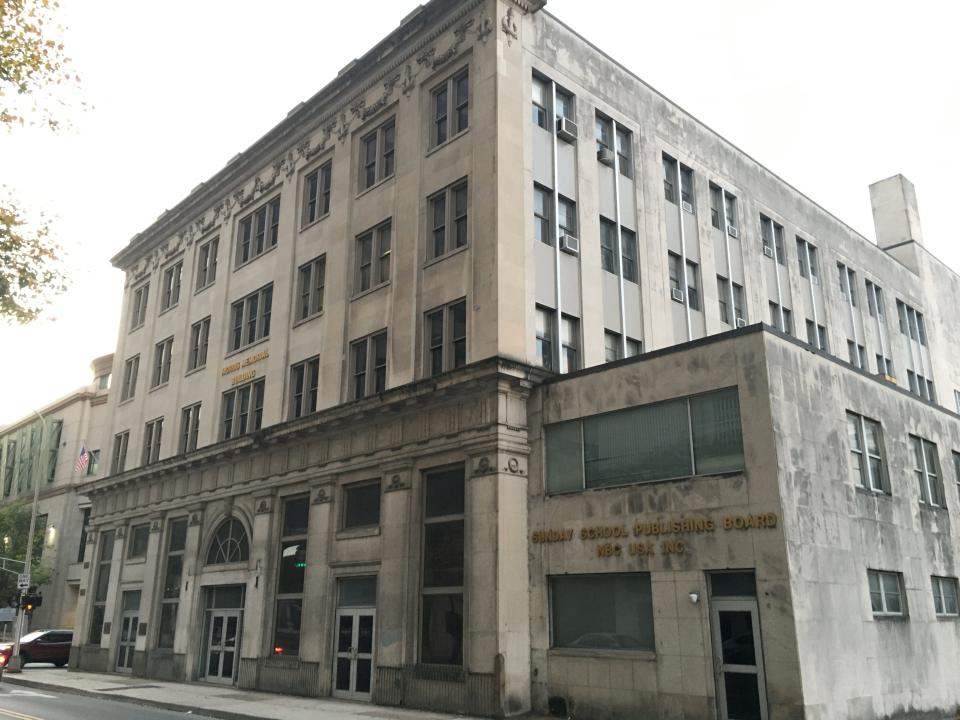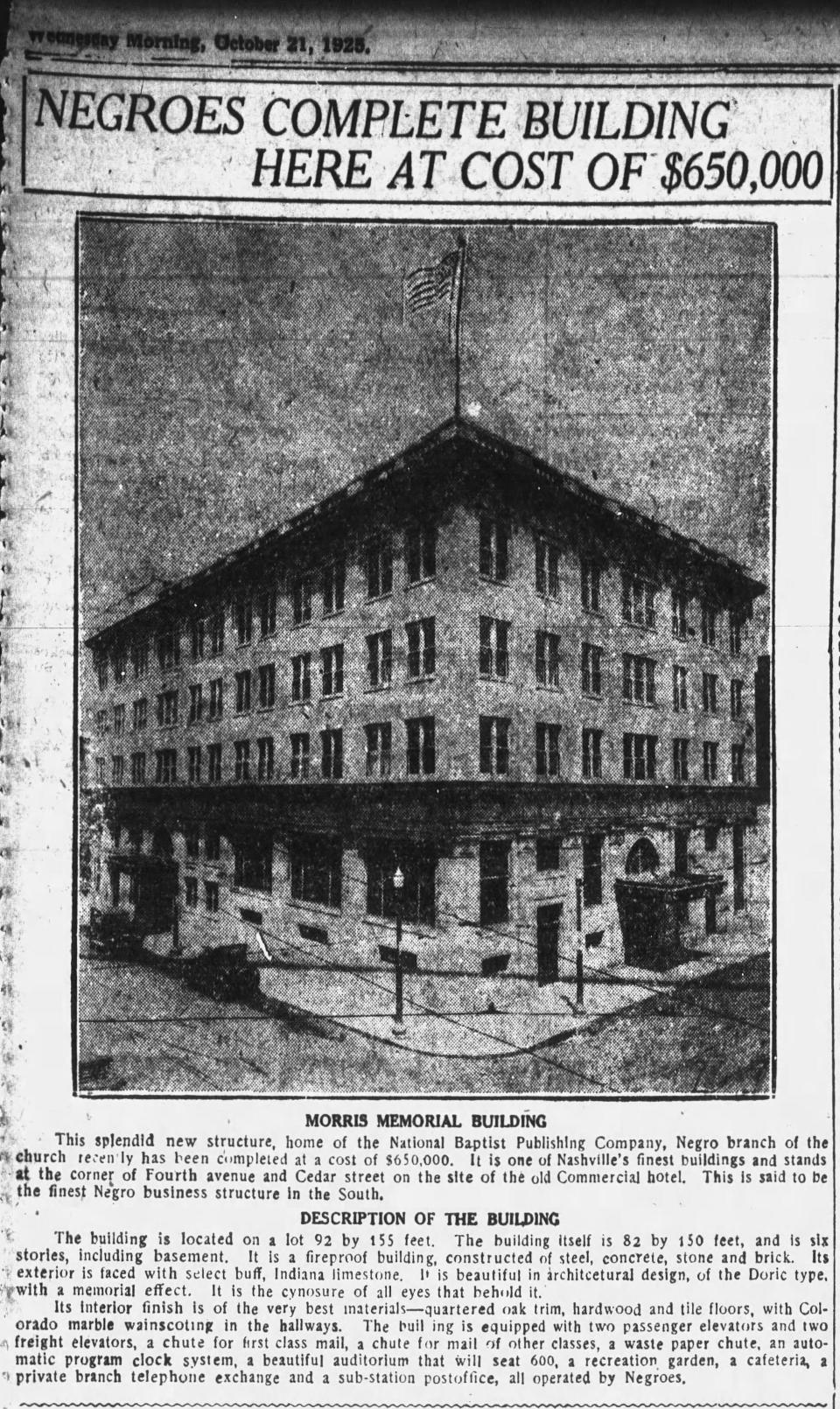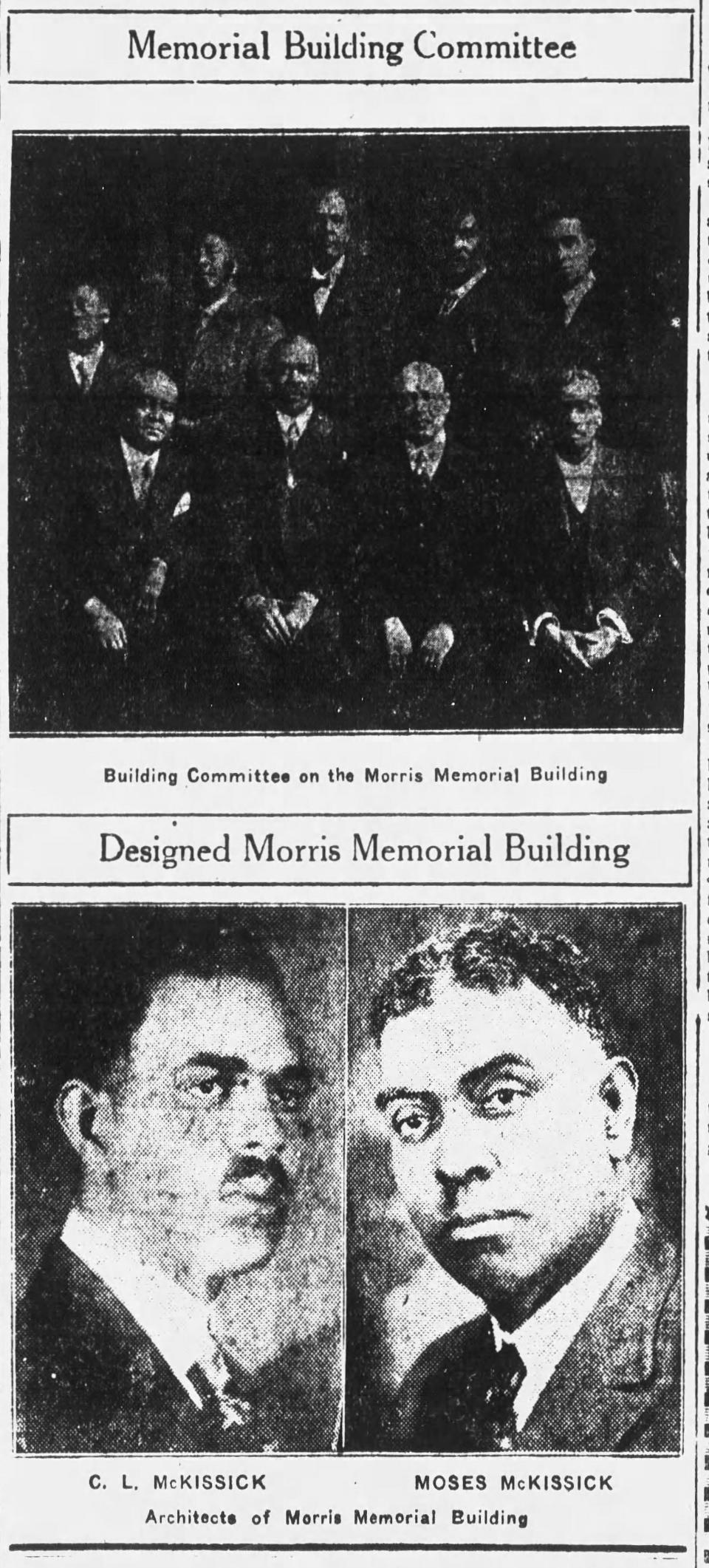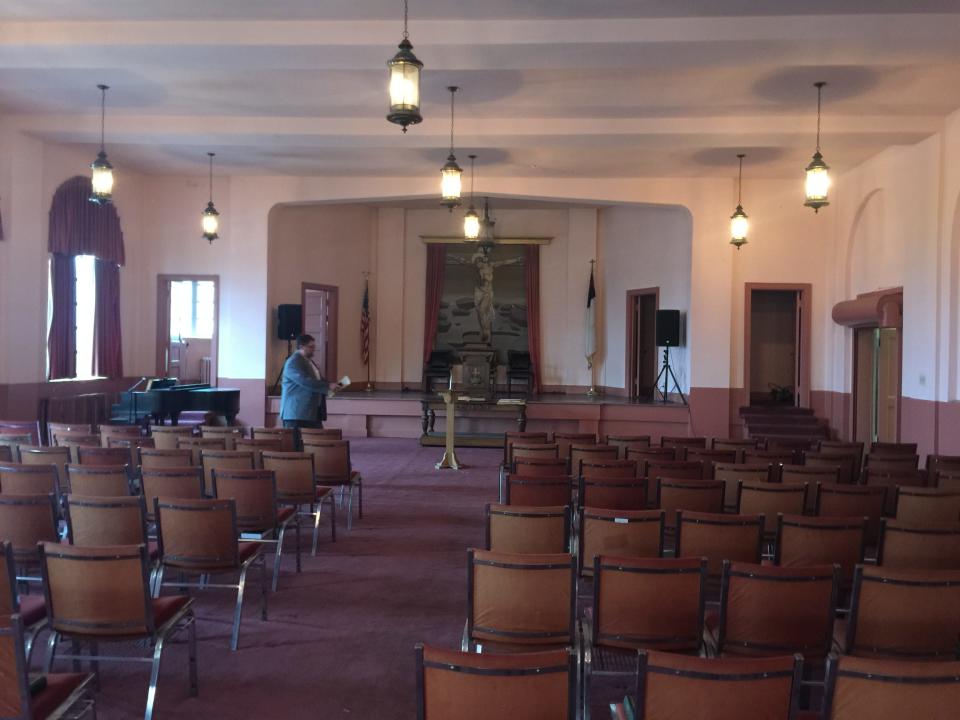Future of historic Morris Building unknown as hospitality group pursues purchase
- Oops!Something went wrong.Please try again later.
- Oops!Something went wrong.Please try again later.
After several fizzled Metro attempts to purchase the Morris Memorial Building, the historic structure regarded as the last bastion of downtown Nashville's Black business district is now under contract with a developer seeking to transform it into a boutique hotel.
Located at what is now 330 Martin Luther King Jr. Blvd., the Morris is a monument of Black history in Nashville. It was designed by the state's first Black-owned architecture firm in the 1920s and built on land where enslaved people were once sold. Nearly a century later, it is the last building remaining from what once was a mecca for the city's earliest Black-owned businesses.
For years, city leaders and preservationist groups have advocated for Metro government to purchase and preserve the building — most recently envisioning a conversion into a Civil Rights museum and local government offices — but the city ultimately balked at each opportunity.
Nashville-based hotel developer Imagine Hospitality is contracted to buy the building from the National Baptist Convention. Imagine Hospitality declined to comment, and the National Baptist Convention did not respond.
Imagine Hospitality confirmed to NewsChannel 5 last week that it is contracted to buy the building, and the group intends to meet with Mayor Freddie O'Connell's office to begin a "collaborative effort" with goals including preserving the building's history.
Metro Council passed an effectively symbolic resolution on Nov. 21 urging O'Connell's administration to pursue all options to preserve the building, including purchasing the Morris or working with any potential buyer. Half of the 40-member council signed on as a sponsor to the last-minute statement.
O'Connell, who previously served on a committee exploring potential Metro uses for the building under former Mayor David Briley, said there are many paths to preservation, and not all of them involve Metro purchasing the building or controlling its renovation. The hospitality group and ownership board appear to have a contract closing date in mid-December, he said, something "Metro can't possibly move quick enough to intervene in."
He plans to ensure Metro has a "key point of contact" with the National Baptist Convention board in hopes of setting up a long-term plan for the building if the deal doesn't close.
District 19 Council member Jacob Kupin said the Morris' preservation is "crucial," "whether by working with the potential new owner or by urging the administration to consider a potential purchase."

A story of 'resilience'
The Commercial Hotel once stood on the corner now occupied by the Morris. Cedar Street (now Martin Luther King Jr. Boulevard) was the center of slave trade in Nashville. A firm called Dabbs & Porter sold people into slavery out of an office there.
But the area ultimately became a nucleus for businesses run by free Black people. Fire consumed the Commercial Hotel in the late 1800s, leaving the plot bare for construction.
The National Baptist Convention, an African American denomination, began construction on the Morris Memorial Building in 1924. The $650,000 home of the Sunday School Publishing Board was designed by Black architectural firm McKissack & McKissack and funded by contributions from congregations across the United States.
The building was named in honor of the convention's first president, Rev. Elijah Camp Morris, who was born into slavery in Georgia and went on to study at the Nashville Normal and Theological Institute.

When completed in 1926, the neoclassical steel and stone building was heralded as a stunning example of McKissack & McKissack's work. A Tennessean article from October 1925 describes the Morris as "one of Nashville's finest buildings," faced with Indiana limestone with an interior finished with oak trim and marble wainscoting, hardwood and tile floors, elevators and numerous amenities supported by Black employees, including a rooftop garden.
An advertisement printed in The Tennessean by the company who completed the building's plumbing described its construction as "a heroic task fostered by a labor of love" that "will stand as a monument to the past, present and future efforts of the organization. It means much to our city from a religious, moral and business viewpoint and all our citizens are proud of it."

McKissack & McKissack moved into the building as a tenant after its completion, and other minority-owned businesses followed.
R.H. Boyd, James C. Napier and Preston Taylor founded the One-Cent Savings Bank and Trust — the first minority-owned bank in Tennessee — in 1904. It became Citizens Bank, the oldest continuously operating minority-owned bank in the nation. The bank occupied the Morris from 1974 through 1985, the year it was listed in the National Register of Historic Places for its architectural and historical significance.
At-large Council member Zulfat Suara, a supporter of recent efforts to convert the building into a Nashville Civil Rights museum, said no value can be put on the preservation of a building that represents the suffering and success of a community.
On Nov. 21, she reminded the Council "it was public policy that led to the demise of the once-thriving Black business district" and Black businesses on Jefferson Street before it was decimated by the construction of Interstate 40.
The story of the Morris Memorial Building is one of "resilience, of pride... one that every African American child ought to know about what their ancestors did in Nashville," Suara said.

Years of preservation interest
The Morris was first named on Historic Nashville's "Nashville Nine" list of at-risk properties in 2016 after developers offered to buy the building with plans to add up to 10 floors for a hotel. Those plans never materialized.
Former Mayor David Briley established a committee to explore the possibility of transforming the building into affordable housing units, but in 2019, the committee determined that plan would be too expensive. Instead, they suggested the building could serve as a civic center, workforce development hub or gallery space. Briley signed an acquisition option with the National Baptist Convention for $12.8 million in early 2019, but amid financial woes and an approaching mayoral election, the prospect flatlined.
The Morris was again featured on the Nashville Nine in December 2019 under fear that redevelopment could lead to the building being demolished or its historic integrity compromised.
It's not on the list this year. Author and Historic Nashville board member Betsy Phillips said the Nashville Nine's criteria focus on historic structures that have no current plans for use.
"Our position as Historic Nashville is that we want to see buildings preserved and used, and so we aren't taking a position on what the best use of the building is," Phillips told The Tennessean.
A frequent contributor to The Nashville Scene, Phillips penned a column in June supporting "Save the Morris," a committee working to transform a portion of the building into a museum chronicling Nashville's African American history. In a separate piece published Nov. 20, Phillips wrote that acquisition by a preservation-focused developer is the "second-best solution" to ensure the site is maintained and reopened to the public.
Metro Council decided against June purchase opportunity
In late May, "Save the Morris" published an editorial in The Tennessean signed by more than 80 individuals and nearly 30 community groups. The group planned summer benefit concerts to support the museum concept, but those were ultimately postponed.
During June budget deliberations, Suara urged Metro Council to support an amendment that would redirect money from a reserve fund used to pay for city equipment and repairs, allowing Metro to purchase the Morris for $6 million — less than half of its asking price in 2019.
On Metro's capital "wish list" for fiscal year 2024, Metro's Human Relations Commission requested $28 million for the purchase and rehabilitation of the space for a museum and Metro offices.
The city currently rents office space for several departments, and the Morris is located across the street from the Historic Metro Nashville Courthouse. Suara said she believes converting about two-thirds of the Morris' approximately 60,000 square feet into Metro office space could save the city millions of dollars over the next two decades.
But representatives for then-Mayor John Cooper's administration said the building's environmental remediation costs were "extremely significant," including the removal of asbestos and lead paint. An Ernst & Young review estimated renovations to "get it habitable" could total $43 million over five years.
The Tennessean has requested a copy of the consulting firm's report.
While many Council members agreed the building is important and worthy of preservation, they disagreed with the suggested source of funding or worried about unknown costs for renovation. The budget amendment failed, 13-24, with one abstention.
The decision sparked frustration among some council members, who pointed to Metro's earlier acquisition of the Global Mall in Antioch and the former Tennessee School for the Blind, both purchased without concrete renovation plans for significantly higher price tags.
On Nov. 21, At-large Council member Delishia Porterfield reiterated that many cities in the United States have museums honoring the legacy of African American communities, but not Nashville. The Nashville Public Library has an "amazing" room dedicated to Nashville's Civil Rights history, but Porterfield wants more.
"We are the heart of the Civil Rights movement. We are the heart of the desegregation movement," she said. "So much of that work started here in Nashville, and we deserve to tell our story, especially while people that were a part of that movement are still here."
This article originally appeared on Nashville Tennessean: Hotel developer to buy Morris Building, monument to Black history

